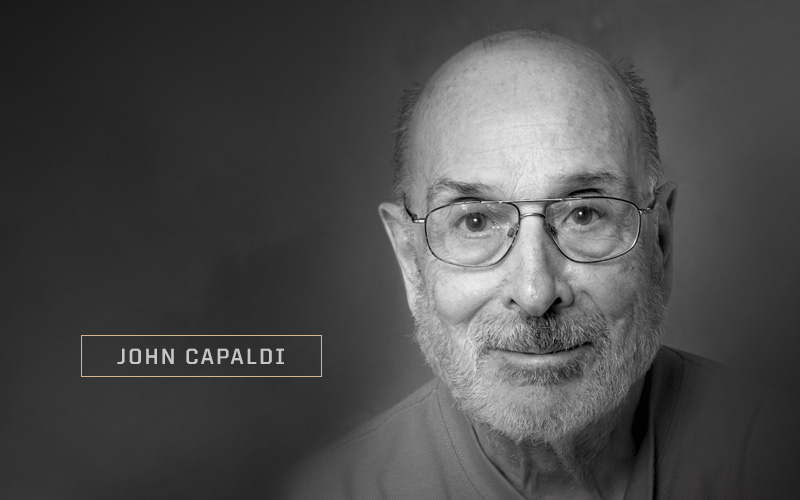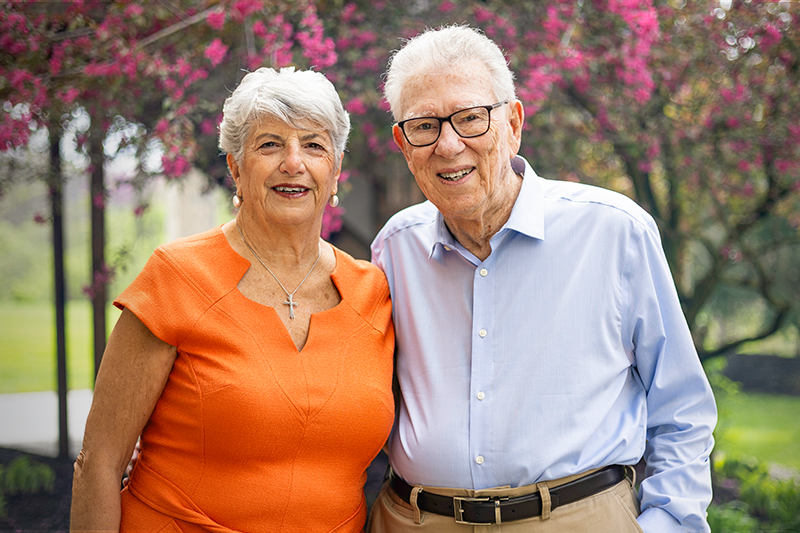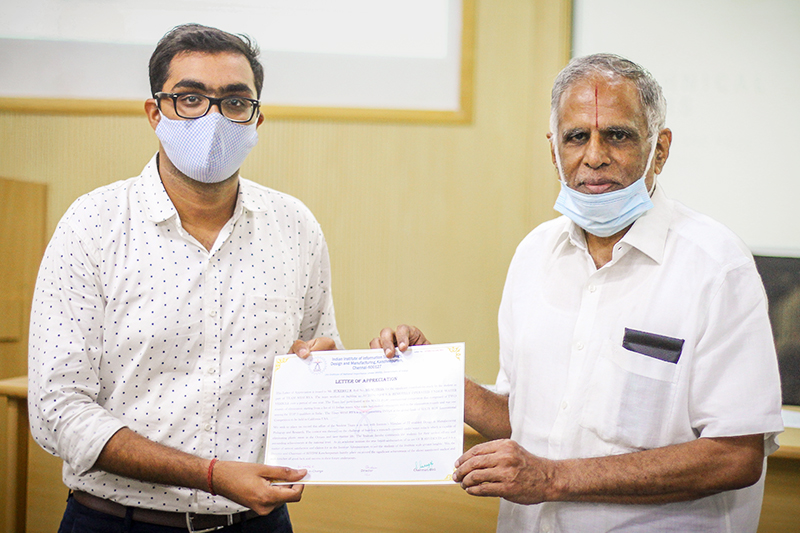“What have you been doing lately to solve the problems of the world?”
One day in 2013, during a rain delay on the golf course, Lafayette attorney Jack Walkey posed this tongue-in-cheek question to Philip Low, a Presidential Scholar for Drug Discovery and the Ralph C. Corley Distinguished Professor of Chemistry at Purdue.
Low’s answer, about an ovarian cancer drug that could help surgeons remove previously undetectable cancer cells, was surprisingly confident. When Walkey asked Low the same question a few weeks later—during yet another rain delay on the golf course—he was surprised again: Low had potentially found a cure for malaria!
Eventually, those two casual but enlightening conversations led to an unexpected bequest from a fellow Purdue faculty member that has unlocked new opportunities for Low and his ongoing mission to find solutions to some of cancer’s most pressing problems.
At the time, Walkey worked as a lawyer for John Capaldi, a professor emeritus of psychological studies at Purdue. When Capaldi lost his only sister to cancer, he told Walkey that when he died, he wanted his remaining assets to support cancer research. Walkey recommended that he consider supporting Low’s research and introduced the two over dinner. After the meal, Low gave a presentation about his promising ovarian cancer drug—an experience that assured Capaldi that Low’s lab would use his funds well.
Capaldi died November 8, 2020, leaving behind a devoted caregiver and two nephews. Much of his estate, including a Purdue-funded retirement account, was left to Low’s lab at Purdue. Capaldi’s estate totaled $8.5 million.
“I was absolutely knocked off my feet when I found out what was in his estate. I am beyond grateful that he entrusted this to me,” Low says. “These funds have come at a perfect time for my lab, in that we have been blessed with many good ideas on how to treat cancer but have been short on the funding to develop them. Over my 40-year career, I’ve taken the time to record my very best ideas. With this remarkable gift, I won’t have to delay exploring them anymore.”
Much of the funding for Low’s lab comes from federal grants, which require precise proposals for how the funding will be used. While these funds are vital, it limits what research Low and his colleagues can pursue.
Private gifts, like that from Capaldi, mean Low can pursue discoveries as they arise, allowing for nimble and time-sensitive discoveries that wouldn’t otherwise be possible. In this area, he’ll apply a question that a lot of people don’t ask in their research careers: How can I use this information to do something that really matters?
“I found that simply asking that question can open up opportunities that I would have never envisioned had I not stopped to think about the potential value to humanity of the work that I was doing,” Low says.
Low considers this perspective and his ideas as his unique opportunity to have a significant impact on the treatment of cancer. “I do believe I have an obligation to minimize the suffering of cancer patients if I can,” he says.
Why is the timing of Capaldi’s bequest so perfect? Low has recently earned FDA approval on the very ovarian cancer treatment he told Walkey about several years ago.
While Low has more than 150 U.S. patents—and many more foreign patents—this is the first of his drugs to make it through the arduous FDA-approval process. The results from this drug have been tremendous, drawing significant attention to Low’s novel treatment methods from the media and drug companies.
When we think of cancer treatment, we think about hair loss, compromised immune systems, bleeding, and a host of other toxic side effects. Low wants to aim smarter.
In short, Low’s therapies are enabling cancer surgeons and doctors to target solely malignant cells with existing cancer treatments. Whether that’s through fluorescent light and surgery in the treatment of ovarian cancer or through killer T-cells that destroy only cancerous cells, Low’s therapies can mean longer lives and better quality of life for thousands of cancer patients.
“We now have a toolbox that we can use to target drugs not only on cancer cells, but also to other malfunctioning cells involved in fibrotic diseases, autoimmune diseases, CNS diseases, bone fractures, and even inherited disease and things of this sort,” Low says. “We’re also using this toolbox to develop more potent and less toxic therapies for a number of different cancers, including childhood cancers, and cancers of the lung, pancreas, colon, head, and neck. We also have a very promising therapy for prostate cancer that recently received FDA approval.”
While Capaldi didn’t know all that his gift could accomplish, he did know that he was entrusting that legacy to a researcher and a university that would steward his gift effectively and in a unique way.
“The atmosphere of encouragement for translating your discoveries into something useful is very prominent and helpful here,” Low says. “It’s nice to know that you can leave a footprint on the planet when you leave. I think we’ll be able to say that we’ve done our best and can feel comfortable that we’ve made a contribution to humanity.”
How can other Boilermakers follow Capaldi in leaving a legacy? “The best way to make an impact is to contribute early and often to your retirement plan,” Walkey says.
Low has his own advice: “One of the most impactful funds for cancer research is Boilermaker Health Innovations. It’s a fund that helps translate basic drug discoveries into clinical trials—a phase in drug development that we call ‘death valley’ because it’s so difficult to find funding for it. This phase is essential to bridging the gap between bringing discoveries at the lab bench to the bedside.”
You can make an immediate gift to Boilermaker Health Innovations here. You can also contact the Purdue for Life Foundation’s planned-giving office at plangift@purdueforlife.org to receive language that can be included in your will or instructions on how to include a Purdue entity as a beneficiary of your retirement plan.


